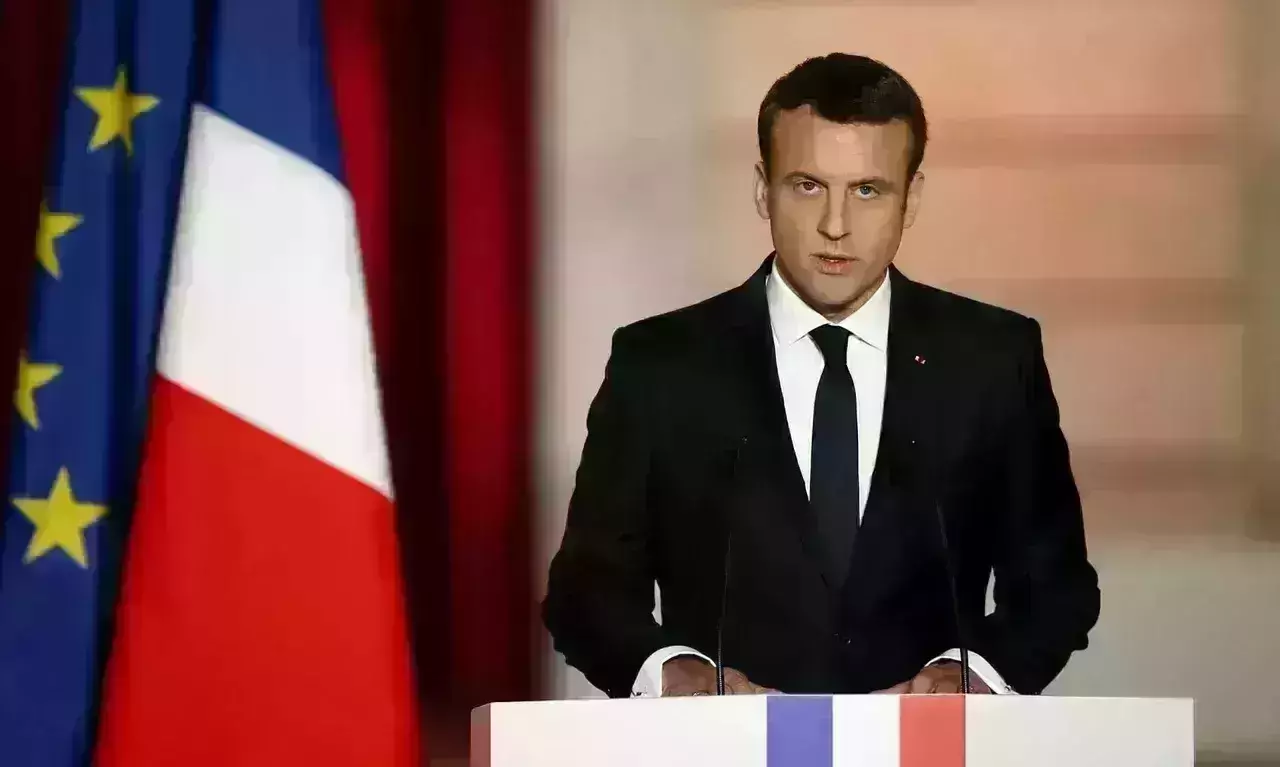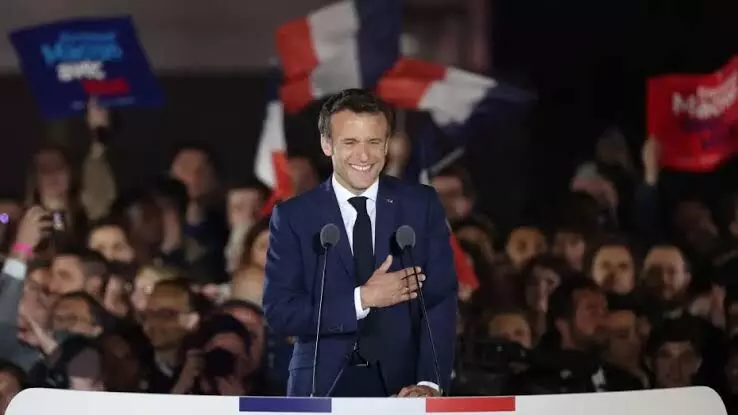
Challenges for Macron in his second term
text_fieldsFrench President Emmanuel Macron
The French electorate has decided that Emmanuel Macron should lead France for another term. In the second round of voting, he beat with a margin of 58.6 per cent votes against 41.4 percent of Marine Le Pen, leader of the far-right National Rally party, who fought the battle for a third time with the ambition of becoming the first woman president. Macron, who had won in 2017 with a margin of 66.35 percent, had to struggle hard this time against the intense anti-immigration, anti-Muslim/Arab and ultra-nationalist campaign of Le Pen. Hence the hailing of Macron's victory by the US and Europe with rare rejoicing as a triumph of centrist democratic forces against the racist right. In the election from which 28 per cent of population abstained, at the time of counting with Macron showing a clear lead, the anxiety of the West was not fully over, a fact evinced in the western media's celebration.
In 2017, the people had reposed a lot of hope in the debutant Macron as the youngest president to rule France ever since Napoleon. One of his key promises was that he would gradually wipe out the far-right racists from the French soil. But on the economic front, the country had its worst inflation since 1985, and the President was facing the charge of being inaccessible. Even in his post-result speech on Sunday, Macron shared his guilty conscience for not being able to much on the governance front. Although he had launched his first term with a declaration that he would not go either left or right, what was seen was a swerving to a right-of-centre track. The low voter turnout in regions with dominant migrant and Muslim working class, and the good margin won by the left even in areas with their high voting percentage, should be read as a protest at Macron's inefficiency and his slack approach in the matter of racist politics. The liberals, Muslims and democratic advocates of the country largely saw him as lesser of the two evils. And the fact that Marine Le Pen was able to left the percentage of her party's vote from the 17.8 percent – which her father Jean-Marie Le Pen had secured in his maiden battle with Jacques Chirac – to a handsome 41 per cent, speaks for what little Macron was able to do against right-wing racism.
For all his administrative failures, the relative merit the French people found is Macron is simply that he was less undesirable than his opponents in the matter of racial hatred. But his struggle is not over. In the National Assembly election that is to take place during June 12-19, the ruling party is not confident of winning majority in the 577 seats. It will have a tough time holding out against the racist opposition that has been clamouring for a constitutional amendment in the legislative house. It is a recognition of this threat that after the declaration of results Macron said that he would give due regard to those who voted for the right-wing parties too. Macron's voters themselves do not hold in high esteem the National Assembly candidates of his party. And before the results were announced, far left leader Jean Luc Melenchon had declared that he had started his campaign for the post of Premier. Thus if Macron fails in garnering enough seats in the National Assembly, he will have the unenviable situation of being forced to put up with a rival in the Premier's chair.
The French population is one that harbours an anti-immigrant, extreme racist streak under the garb of a liberal democracy. That is why any political leader or party is eager to capitalise on this sentiment rather than fight on the plank of people's problems. Hence the anti-immigrant segment itself witnessed the formation of right, extreme right and ultra right factions within that political spectrum. At one point earlier, Macron himself was in the forefront of provocative and controversial remarks against Islam and Muslims. Subsequently when Le Pen entered the scene with firebrand rhetoric, he got outshined in that respect. And now, outflanking even Le Pen, the anti-immigrant provocateur Eric Zemmour has entered the fray with an ultra-nationalist plank to 'recapture the Christian values of France'. With that, the thrust of the earlier versions dwindled in comparison. But at the same time, Europe is said to have come to the realise that this brand of racial hate will not take the nation anywhere, a realisation which the western media see as being symbolised in Macron's victory. Whether that conclusion is right remains to be judged in the coming days of Macron's second term.


























